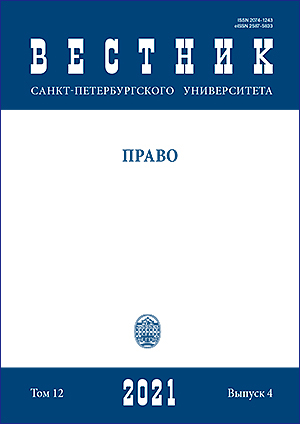Prohibition of discrimination on the grounds of genetic characteristics in US legislation and judicial practice
DOI:
https://doi.org/10.21638/spbu14.2021.418Abstract
The article examines current problems of discrimination on the grounds of genetic characteristics. For the first time, this problem was seriously raised by the scientific community in the USA, becoming a topic of debate and one of the areas of state legal policy. As a result, numerous laws were drafted and adopted both at the state and federal levels to prohibit disclosure of confidential human genetic information, as well as its misuse in areas of employment, insurance, education, housing, etc. The analysis of legislation and judicial practice has shown that the adopted measures have introduced common basic standards, according to which employment or promotion decisions should be based on qualifications and a person’s ability to perform a job, and not on the basis of presumed genetic factors that do not influence the effectiveness of their work at the current time. Insurance companies should take into account an individual’s current state of health, and the amount of rates and premiums should not be adjusted on the basis of predictive genetic information. Therefore, it is prohibited to discriminate on the basis of predictive genetic information and not on the basis of a pre-existing condition. The confidentiality of the results of genetic testing should be protected and the results of testing should not be disclosed to third parties (including insurance companies or employers). At the same time, federal genetic nondiscrimination law should not interfere with state laws that provide a higher level of protection against genetic discrimination, for example in housing, education, mortgages, etc.
Keywords:
genetic nondiscrimination law, discrimination on the grounds of genetic characteristics, predictive genetic information, confidentiality of genetic information, right to privacy
Downloads
References
Downloads
Published
How to Cite
Issue
Section
License
Articles of "Vestnik of Saint Petersburg University. Law" are open access distributed under the terms of the License Agreement with Saint Petersburg State University, which permits to the authors unrestricted distribution and self-archiving free of charge.






